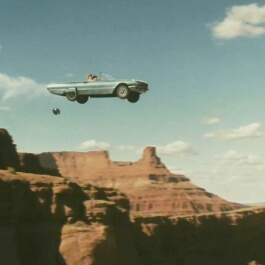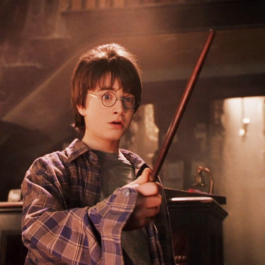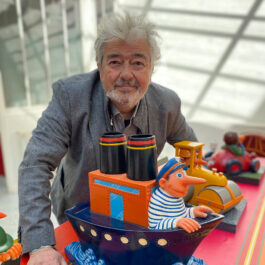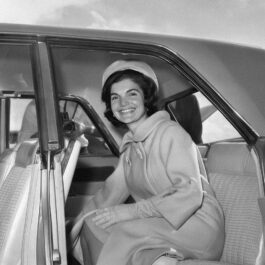Culture
20 Ways Christopher Nolan Changed Cinema
Slide Nr 1On any list of great artists of the 21st century, the name Christopher Nolan should surely be included when talking about cinema. In a time when franchises and branding are of paramount importance to studios across Hollywood, the British director has managed to retain the artistry, originality and entertainment factor of the classic movie experience. And while he has yet to be bestowed with any major industry awards, his legacy is undeniable: Nolan has changed how we think about cinema at large. Here, we look at twenty ways modern movies are better because of his work…
0/20
Culture
20 Ways Christopher Nolan Changed Cinema.
Slide Nr 2A Darker Knight – Though he’s not the first filmmaker to embrace a darker telling of superhero stories, Christopher Nolan made the ambiguous hero movie into an art. His Dark Knight trilogy, starting in 2005 with Batman Begins and ending with 2012’s The Dark Knight Rises, took a spectacular world and made it real in a way few had ever done before. “My pitch was, at the time, ‘let’s treat this with some sense of reality,’” he recalled in a 2008 interview. “Not so much a comic book movie as an action film. Really, the idea of an extraordinary character in an ordinary world.” Compare this approach to that of the Marvel Universe, and his DC movies really do stand apart, in even this densest of genres.
1/20
Culture
20 Ways Christopher Nolan Changed Cinema.
Slide Nr 3Flawed Heroes – Nolan’s more psychological approach to many of his lead characters has inspired others to follow his lead. Franchises like James Bond, Mission: Impossible, and DC Universe films have taken a more philosophical turn after seeing the director achieve great success with big films that asked bigger questions – and didn’t just rehash the old good vs evil tropes.
2/20
Culture
20 Ways Christopher Nolan Changed Cinema.
Slide Nr 4A Dream Within A Dream – You know a film is successful when it gives rise to a new term! Nolan’s incredible 2010 science fiction movie Inception, about a group of criminals who steal information by entering dreams, became a benchmark of filmmaking for its high concept and intelligent entertainment value. However, it also seems to have entered our vernacular. Ever since the film’s release, it’s become popular to employ the term ‘inception’ to refer to something within itself (rather than its original meaning, ‘establishment’ or ‘beginning’). It’s not the first film to redefine a word – the word ‘godfather’ only took on a criminal connotation after the classic 1976 film. Nevertheless, it shows the impact Nolan’s vision can have on the wider culture.
3/20
Culture
20 Ways Christopher Nolan Changed Cinema.
Slide Nr 5Deconstructing Time – Time is often a relative concept in Christopher Nolan’s films, and time itself is a common thread in most of the stories he tells. In the Batman films, for instance, the Caped Crusader’s villains all have plans that involve a countdown, while Inception, Interstellar, Tenet and Memento all feature time displaced, with the audience thrown back and forth in a non-linear fashion. “Time is the most cinematic of subjects, because before the movie camera came along, human beings had no way of seeing time backwards, slowed down, sped up,” Nolan told NPR, explaining that his time-twisting themes are a vital part of what he enjoys about making films.
4/20
Culture
20 Ways Christopher Nolan Changed Cinema.
Slide Nr 6Keeping It Real – While some scenes have to be made with CGI for safety reasons, Nolan is adamant about using as many practical effects as possible. This can mean using high-definition monitors instead of green screens for Interstellar, making a whole room rotate in Inception, or blowing up a 747 plane in 2020 spy thriller Tenet. This led to some amusing comments when he announced he would be making a film about the creation of the atom bomb in Oppenheimer, although we assume he filmed the explosion scenes with minimal casualties!
5/20
Culture
20 Ways Christopher Nolan Changed Cinema.
Slide Nr 7Saving The Cinema – Having grown up shooting films on old Super 8 film, Nolan is naturally very fond of traditional movie-making. At times dismissed as sentimental for his resistance to mediums like streaming, he was nonetheless a saviour of the theatrical experience when he insisted on Tenet being released in cinemas that were desperate for content following the global shutdown of 2020. “For me as a filmmaker, the film is not finished until the audience gets to see it and tell me what it is that I’ve done,” he said in an interview. This bold move demonstrates his devotion to film as a collective experience.
6/20
Culture
20 Ways Christopher Nolan Changed Cinema.
Slide Nr 8Making Films Larger Than Life – While he is considered a cinema traditionalist, Nolan in fact pioneered one of the most modern aspects of cinema-going. He shot much of The Dark Knight on IMAX cameras, allowing for scenes and shots to be expanded to fit the large-format screens. While many films were optimised for IMAX 3D, Nolan innovated based on the technology’s ability to make city scenes and big stunts seem immersive.
7/20
Culture
20 Ways Christopher Nolan Changed Cinema.
Slide Nr 9Making Superhero Movies Prestigious – Historically, movies based on comic books have rarely had a shot at the Oscars. A few have won awards for technical achievements, and there have been occasional nominations for actors like Al Pacino in Dick Tracy or Paul Newman for Road to Perdition. However, the incredible performance of Heath Ledger in 2008’s The Dark Knight could not be denied, becoming the first comic book movie to score in one of the most popular categories when he posthumously won Best Supporting Actor for playing the Joker. It offered legitimacy for comic book movies and paved the way for films like Black Panther, Avengers: Infinity War, and 2019’s Joker to feature in categories they might not otherwise have been considered for. It’s a testament to the ambitions of Nolan and the abilities of Ledger, who died before the film’s release.
8/20
Culture
20 Ways Christopher Nolan Changed Cinema.
Slide Nr 10The Superstar Director – Aside from the Dark Knight trilogy, Nolan has stayed away from franchises, choosing instead to make complicated thrillers and historical dramas as standalone stories. That’s something of a rarity in Hollywood these days, where big-budget films generally rely on a familiar brand or franchise to draw in the maximum amount of viewers – and profit. Though he might wince at the idea, in the case of his films, Nolan himself is the selling point. Millions queue up to see a Christopher Nolan film, making him one of the few contemporary directors able to work primarily on large productions that aren’t sequels, remakes or adaptations of pre-existing stories.
9/20
Culture
20 Ways Christopher Nolan Changed Cinema.
Slide Nr 11Bringing The ‘80s Back – Nolan has a great love for 1980s cinema, and eagle-eyed viewers will notice a thread with some of the casting decisions he makes in films. Matthew Modine, an actor who came to prominence with Stanley Kubrick’s Full Metal Jacket, as well as ‘80s icons David Bowie, Eric Roberts and Breakfast Club member Anthony Michael Hall have all appeared in his films. In the case of Bowie, superfan Nolan recalls pleading with the late musician to play inventor Nikola Tesla in 2006’s The Prestige: “I petitioned to let me explain why he was the right actor for it,” he told EW. “In total honesty, I told him if he didn’t agree to do the part, I had no idea where I would go from there. I would say I begged him.”
10/20
Culture
20 Ways Christopher Nolan Changed Cinema.
Slide Nr 12A Space Odyssey – Science fiction films tend to rely more heavily on the ‘fiction’ aspect, with many scientists over the years have debunked famous moments in the genre’s history (sorry, the Death Star wouldn’t make a sound when it exploded!). However, Christopher Nolan’s 2014 opus Interstellar left many physicists stunned, with legendary figure Michio Kaku describing it as the “gold standard” for scientific accuracy going forward. Part of pulling this off was employing physicist Kip Thorne to advise on the creation of believable black holes in space. Those wanting to market a realistic space movie now have a higher bar to clear thanks to his efforts!
11/20
Culture
20 Ways Christopher Nolan Changed Cinema.
Slide Nr 13Respecting The Science – Space isn’t the only place where scientific theory is given precedence. Nolan studied the nature of anterograde amnesia for his film Memento, about a man with the condition piecing together clues about a murder. He also immersed himself in technological innovation for magic mystery The Prestige, and engaged explosive experts to replicate the visuals of an atomic explosion for Oppenheimer. You might say Nolan pioneered the philosophy of grounding everything you see in practical reality.
12/20
Culture
20 Ways Christopher Nolan Changed Cinema.
Slide Nr 14A Story In Sound – Sound editing is hugely important in all films, but in one particular filmography, noise (or an absence of it) is imperative. 2017’s Dunkirk features little dialogue, relying on the actions and reactions of soldiers to tell the story. Tenet, on the other hand, became infamous for its sound mix, where not every word of dialogue was audible, creating an air of mystery around the already complicated story. The music composed for his films also defies expectation: the whining single note at the beginning of The Dark Knight, or the now-infamous horn noise that Hans Zimmer has used more than once in Nolan’s movies. Even Christian Bale’s Batman speaks in a growly voice in order to further his superhero disguise.
13/20
Culture
20 Ways Christopher Nolan Changed Cinema.
Slide Nr 15The Nolan Effect – It’s one thing to talk about how Nolan uses sound, it’s quite another to see how it’s adapted to the world around us. Writers have talked about the Nolan Effect, or the idea that the director’s work has made more aspects of the viewing experience important. The filmmaker proudly claims that his films are made for cinemas – and large-scale cinemas at that. So, those watching at home or on smaller devices have found that subtitles are necessary if their equipment isn’t up to the standards of the production. Nolan is a filmmaker who makes audiences work for his stories…
14/20
Culture
20 Ways Christopher Nolan Changed Cinema.
Slide Nr 16All In The Details – … and another example of this workload is the amount of references hidden within his films. Small tributes are dotted around in his blockbusters, like a Charles Dickens reference in The Dark Knight Rises, or an obscure reference to one of star John Lithgow’s past roles in Interstellar. However, keen viewers will find more complicated Easter eggs buried within the films’ very DNA, such as all the music in Inception being composed to variations of the same tempo, or a split second in Memento that reveals the face of the real killer. Those who pay attention in these films are rewarded in ways few other filmmakers can manage.
15/20
Culture
20 Ways Christopher Nolan Changed Cinema.
Slide Nr 17Intellectual Blockbusters – One of the things that makes Nolan’s work stand out is the idea that his movies can mix intellectual themes while still drawing in crowds. Generally speaking, the big, expensive crowd-pleasing films are heavy on explosions but light on depth, while more intricate stories tend to be low-budget and are screened in smaller cinemas. Nolan’s work is proof that both can exist in modern cinema, creating a balance that’s rare to see.
16/20
Culture
20 Ways Christopher Nolan Changed Cinema.
Slide Nr 18Familiar Faces In A New Light – Career reinvention for an actor often happens in the hands of a director who sees something few others do. Nolan has often cast actors known for particular genres in a different type of role, and often it takes a minute for audiences to catch up. Eyebrows were raised when heart-throb Heath Ledger was cast as the Joker for The Dark Knight, and pop star Harry Styles as a soldier in 2017’s Dunkirk. Both choices were vindicated, however, changing the way we look at those performers. It’s a habit Nolan began early on in his career, casting funny man Robin Williams as a killer in 2002 thriller Insomnia.
17/20
Culture
20 Ways Christopher Nolan Changed Cinema.
Slide Nr 19Keeping It In The Family – One of the most common aspects of Nolan’s filmmaking has been his ability to take a regular cast of characters and reinvent them from story to story. Acting greats like Michael Caine, Kenneth Branagh and Cillian Murphy are repeatedly used in his films, while behind the scenes, his collaborations with cinematographer Wally Pfister and composer Hans Zimmer are legendary. Murphy in particular established a connection through being a fan of Nolan’s work: “I was a Chris Nolan fan. That’s how I was when I met him for the first time, because I’d watched Following, I’d watched Memento, I’d watched Insomnia. And I met him for Batman Begins on the basis of being a fan,” he told Rolling Stone.
18/20
Culture
20 Ways Christopher Nolan Changed Cinema.
Slide Nr 20Preserving The Past For The Future – As well as filming and projecting his movies on actual film (as opposed to digitally), Nolan is a vocal proponent of preserving movies as they were intended to be seen. The Library of Congress appointed Nolan one of 25 members of the National Film Preservation Board, and he sits on the board for Martin Scorsese’s Film Foundation, which raises funds and awareness for the preservation of movies from the past. Given that some films have disappeared from time without proper restoration, Nolan is working to preserve Hollywood history.
19/20
Culture
20 Ways Christopher Nolan Changed Cinema.
Slide Nr 21The Open Ending – A knowing glance from across a restaurant, a quest to find a loved one, or simply a spinning top. Nolan’s films end enigmatically, with questions left unanswered and audiences still perched on the edge of their seats. That not everything is wrapped up neatly is a mark of the artist’s commitment to telling unique stories, and quite often his fans spend hours debating just what the true meaning was. Is he the best at doing this kind of ending? That’s for you to decide!
20/20
















Sorry, the comment form is closed at this time.